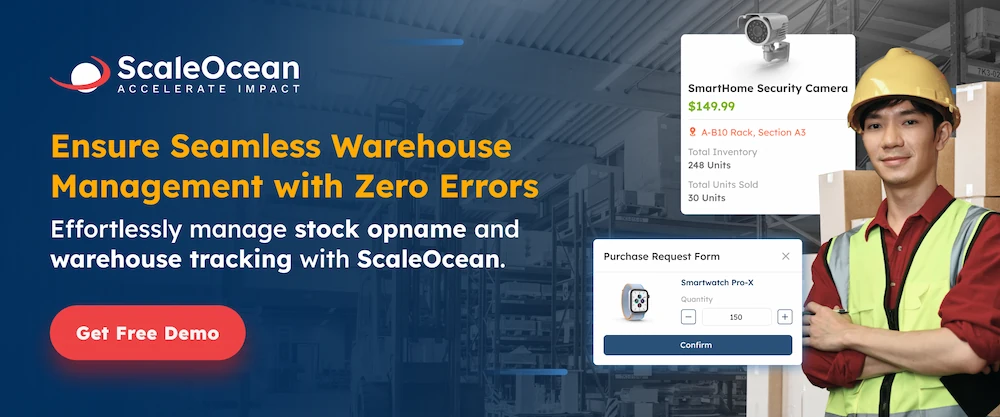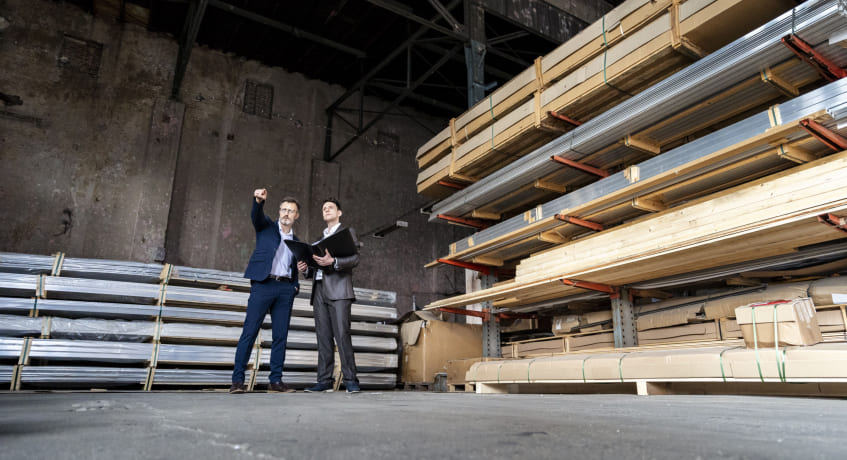A bonded warehouse is a type of storage facility that holds products without requiring immediate payment of customs charges. These warehouses are closely monitored by customs authorities, allowing enterprises to defer charges until the items are ready for distribution or re-export.
This is different from ordinary warehouses, where duties are due as soon as the items arrive. Bonded warehouses are especially significant in Singapore, which serves as a worldwide logistics hub.
They assist firms in managing costs, increasing cash flow, and streamlining international trade processes. This article will take a deep look at the definition of bonded warehouse, many types of bonded warehouses in Singapore, their advantages, and how they differ from non-bonded warehouses.
- A bonded warehouse is a customs-authorized facility where imported goods can be stored or even processed without having to pay duties and taxes right away.
- Bonded warehouses provide benefits like duty deferral, storage flexibility, enhanced security, and customs compliance, making them ideal for international trade and inventory management.
- In Singapore, types of bonded warehouses are various, such as public, private, customs-approved, and FTZ warehouses.
- ScaleOcean WMS enhances the management of bonded warehouses by automating stock control, providing real-time data, and ensuring compliance with customs regulations.

What is a Bonded Warehouse in Singapore?
A bonded warehouse is a customs-authorized facility where imported goods can be stored or even processed without having to pay duties and taxes right away. This gives businesses more flexibility, as they can defer GST and duties until the goods are ready for distribution or export.
This arrangement also allows importers and exporters to manage their cash flow more effectively because they do not need to pay customs upfront. Singapore Customs monitors and controls all items at these warehouses. The warehouse operator ensures that the items remain untampered with and uses them only for lawful purposes.
Benefits of Bonded Warehouses
Bonded warehouses offer considerable benefits to enterprises in international trade by providing flexible storage without immediate duty payments, thereby optimizing cash flow and improving operational efficiency. These regulated facilities ensure that items are processed in accordance with customs legislation.
As organizations expand, bonded warehouses offer a cost-effective solution for inventory management and logistics. When paired with a warehouse management system (WMS), they streamline stock control, enhance performance, and highlight the importance of warehouse logistics in overall operations.
Here are the key benefits of using a bonded and custom bonded warehouse:
Duty Deferral
One of the key advantages of a bonded warehouse is the deferral of customs duties. Businesses don’t have to pay import tariffs until the goods are removed from the warehouse, which can help free up capital for other business activities and investments.
This delay in duty payments allows companies to better manage cash flow. By holding onto their inventory without immediate financial strain, firms can allocate resources more effectively and maintain smoother operations without worrying about upfront costs.
Storage Flexibility
Bonded warehouses offer long-term storage, which is great for organizations that handle huge volumes of goods or seasonal products.
This flexibility enables businesses to hold their goods until market circumstances improve, eliminating the need to rush things to market or confront storage constraints.
Security
Customs authorities strictly monitor these warehouses to ensure the security of the stored cargo. The items are monitored to prevent any illicit behavior, giving businesses peace of mind and reducing the risk of theft or damage.
For businesses looking to improve their understanding of effective warehouse management practices, a warehouse management guide can be a useful resource to enhance operational strategies. Furthermore, this oversight contributes to the preservation of goods’ integrity, allowing firms to keep high-value or sensitive products with confidence.
Customs Compliance
Using a bonded warehouse helps to ensure compliance with both local and international trade requirements. It helps businesses manage their goods in accordance with Singapore’s stringent customs regulations, eliminating delays and penalties for noncompliance.
This attention to regulations also streamlines the process of dealing with import/export paperwork, significantly streamlining business operations. According to Singapore Customs, the processing time for ZGS Scheme licenses is typically 3 to 4 months after submitting the necessary documents.
24/7 Access to Inventory
A major perk of bonded warehouses is the ability to access inventory at any time. With 24/7 access, businesses can manage their stock more effectively and respond quickly to market changes or customer demands, providing more flexibility in operations.
Having constant access also means businesses can perform tasks like inventory checks, packaging, and preparing goods for export whenever necessary. This makes managing stock easier and helps businesses stay on top of their operations without limitations.
Enhanced Customer Support
Bonded warehouses help businesses provide better customer service by ensuring goods are readily available for fast distribution. This means quicker order fulfillment, which helps meet customer expectations and improve overall satisfaction with timely deliveries.
With products stored in a bonded warehouse, businesses can offer more flexible delivery options, ensuring a quicker turnaround. This responsiveness strengthens customer relationships and ensures that orders are delivered on time, improving the overall service experience.
Additional Services
Many bonded warehouses offer additional services like repackaging, labeling, or assembly. These services allow businesses to make adjustments to their products before they’re released, saving both time and money while deferring customs duties.
Using these value-added services, businesses can easily adjust products for different markets without needing separate facilities. This simplifies operations, improves efficiency, and helps businesses meet the needs of various markets while keeping costs in check.
Ease of Re-exportation
Goods stored in bonded warehouses can be re-exported duty-free, which is a huge advantage for businesses that are involved in international trade or transshipment. This makes it easier to move products across borders without the hassle of paying customs duties multiple times.
By avoiding the repeated payment of duties, businesses can simplify their shipping and logistics processes, speeding up international trade. This efficiency helps companies deliver products faster to global markets while reducing costs associated with customs procedures.
Reduced Risk of Obsolescence
By postponing duty payments, businesses can prevent unnecessary expenses on perishable goods with limited shelf lives. This delay allows businesses to evaluate market demand before committing to taxes, thus reducing the risk of financial losses from expired inventory.
This flexibility ensures that companies don’t prematurely pay duties on products that may not sell, mitigating the risk of obsolete stock. By analyzing market trends first, businesses can make smarter decisions about when to clear their inventory, minimizing losses from expiration.
Types of Bonded Warehouse in Singapore
In Singapore, there are various types of bonded warehouses, each built to satisfy distinct logistical and trading requirements. These warehouses enable businesses to store goods while postponing customs charges, giving them more flexibility and control over inventories.
The following are the primary types of bonded warehouses in Singapore:
Public Bonded Warehouses
Public bonded warehouses are government-approved facilities shared by multiple businesses to store imported goods. These warehouses offer an affordable and flexible storage solution for companies that don’t have their own storage space, helping to reduce costs.
With shared facilities, companies can store inventory without the need to manage their own storage space. This arrangement makes it easy for businesses to access their goods while benefiting from a cost-effective solution without the responsibility of warehouse management.
Private Bonded Warehouses
Private bonded warehouses are owned and operated by a single company for storing its own products. These warehouses offer greater control over inventory and allow businesses to customize storage and handling processes to meet their specific needs.
Companies with high storage volumes or unique requirements typically use private bonded warehouses. These warehouses provide more flexibility, allowing businesses to tailor their operations and manage their goods more efficiently without relying on shared spaces.
Here’s a look at the two types of private bonded warehouses used for storing different kinds of goods:
- Wet Bond: A wet bond is a private bonded warehouse designed for storing liquid goods like alcohol or chemicals. It uses specialized equipment to manage and store liquids safely and efficiently.
- Dry Bond: A dry bond is used for storing non-liquid goods such as electronics, textiles, or machinery. It ensures products are kept in a dry, safe environment to prevent damage.
Customs-Approved Warehouse
A customs-approved warehouse in Singapore is officially authorized by Singapore Customs to store goods in compliance with local regulations. These warehouses are ideal for high-value or sensitive items that require extra security or specialized handling.
Businesses often use these warehouses to ensure their products meet regulatory requirements and maintain a secure environment for storing goods. Customs-approved warehouses offer companies the assurance that their goods are stored according to the country’s legal and safety standards.
Free Trade Zone (FTZ) Warehouses
FTZ warehouses are located within Singapore’s designated Free Trade Zones, offering businesses additional advantages, such as duty exemptions for products stored within the zone. These warehouses are particularly useful for firms engaged in export or transshipment activities.
FTZ warehouses help businesses take full advantage of Singapore’s free trade agreements, providing them with tax breaks and logistical flexibility. Companies can store goods for longer periods, re-export them duty-free, and reduce operational costs through these specialized zones.
Here’s a comparison table highlighting the key differences between Free Trade Zone (FTZ) warehouses and bonded warehouses:
| Criteria | FTZ Warehouse | Bonded Warehouse |
|---|---|---|
| Goods Allowed for Storage | Primarily for the export or transshipment of goods | Goods awaiting customs clearance or re-export |
| Tax Benefits | Duty exemptions and tax breaks for goods stored in the zone | Tax deferrals on imported goods until cleared |
| Regulations | More flexible regulations, designed for international trade | Stricter regulations, focused on customs compliance |
| Storage Time Limit | No specific time limit, goods can be stored longer | Limited time frame for goods stored before clearance |
| Best Suited For | Businesses engaged in export and transshipment | Companies dealing with imported goods and awaiting clearance |
Each type of bonded warehouse in Singapore brings its own benefits, whether it’s the affordable public warehouses or the specialized FTZ and customs-approved options. To make managing your inventory even smoother, ScaleOcean’s warehouse software can help streamline your operations, boost efficiency, and cut costs.

Bonded vs. Non-bonded Warehouses: What’s the Difference?
The primary distinction between bonded and non-bonded warehouses is the payment of customs and taxes. Goods stored in bonded warehouses are exempt from immediate customs charges. Duties are postponed until the items are shipped for consumption, re-exportation, or sale.
Customs authorities strictly supervise and monitor these warehouses to ensure that they comply with local laws. In contrast, non-bonded warehouses do not provide duty deferment.
When items arrive, duties and taxes must be paid right away. Non-bonded warehouses are often utilized for commodities that are ready for local distribution and do not require special customs treatment or a delay in tax payments.
What are the Examples of Bonded Warehouses in Singapore?
Several companies in Singapore operate bonded warehouses to serve a variety of sectors and logistics needs. These warehouses offer firms flexible and secure storage choices, with customs charges deferred until items are taken out. The following are some instances of bonded warehouses in Singapore:
Changi Airport Free Trade Zone
This free trade zone, located near Changi Airport, is home to various bonded warehouses that are particularly popular among international airfreight enterprises. It has excellent access to worldwide markets, making it a perfect location for businesses that require high-volume air freight with short transit times.
According to CAAS, the Changi Airport Master plan allocates 80,000 square metres of land for the development of the ACE Hub and its supporting airside infrastructure.
PSA International
PSA operates bonded warehouses in Singapore’s port districts to facilitate the import and export of products through one of the world’s busiest transshipment hubs.
Their strategic placement enables firms to simplify supply chains and manage goods more efficiently in a globalized world.
Use the ScaleOcean WMS Solution to Transform Your Bonded Warehouse
ScaleOcean WMS is an innovative software solution for optimizing warehouse operations, especially those in bonded facilities. It enables firms in Singapore to manage inventory more accurately, increase order fulfillment, and interact easily with other systems.
Real-time inventory tracking, automated stock management, and improved data visibility are among the key benefits, which assist to decrease costs, increase efficiency, and ensure customs compliance. We provide a free demo of ScaleOcean software to help you understand how it may improve your bonded warehouse operations.
Furthermore, businesses in Singapore can benefit from ScaleOcean’s CTC (Capability Transfer Grant), which helps subsidize the adoption of ScaleOcean’s innovative ERP solutions and technologies, supporting smoother implementation and enhancing operational efficiency.
The ScaleOcean software includes the following major features:
- Real-Time Inventory Tracking: ScaleOcean WMS offers real-time inventory tracking, improving transparency and reducing stock errors in bonded warehouses.
- Seamless System Integration: Integrates with other business modules for smooth data flow, enhancing operational efficiency in bonded warehouse management.
- Automated Stock Replenishment: Automated stock replenishment ensures optimized inventory levels and reduces manual errors.
- Optimized Picking and Routing: Optimizes picking strategies to speed up order fulfillment and reduce delays in bonded warehouses.
- Barcode Management: Uses barcode scanning for accurate inventory tracking, ensuring compliance and efficiency in bonded warehouses.
Conclusion
A bonded warehouse is a customs-approved facility where imported goods can be stored without immediate payment of customs duties and taxes. This offers businesses flexibility, improves cash flow, and allows for easier inventory management while complying with customs regulations.
ScaleOcean develops unique software solutions that improve company processes, including warehouse management. Companies can utilize ScaleOcean WMS to streamline warehouse operations, improve control, and make more informed decisions, resulting in increased efficiency and business success.
FAQ:
1. What are the disadvantages of a bonded warehouse?
Drawbacks of Bonded Warehousing:
1. Navigating complex customs procedures can be time-consuming.
2. Operational costs may be higher due to security and compliance needs.
3. Limited flexibility when it comes to accessing goods quickly.
2. How long can goods stay in a bonded warehouse?
Goods typically cannot stay in a bonded warehouse for more than 5 years from the importation date. However, the Center director may allow an extension if a proper request is made and there is a valid reason for the delay.
3. Who owns a bonded warehouse?
Public bonded warehouses are owned by the government, offering secure storage with customs oversight. In contrast, private bonded warehouses are managed by private companies but still operate under customs regulations to ensure compliance.
4. Why is it called a bonded warehouse?
A bonded warehouse gets its name because when goods are stored there, both the importer and the warehouse owner sign a bonding agreement. This agreement ensures compliance with customs duties and regulations until the goods are cleared.











 PTE LTD..png)
.png)

.png)








.png)
.png)
















